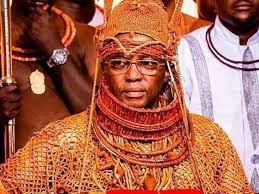
Recently, the Oba of Benin, Oba Ewuare II, called on Edo indigenes and residents to embark on a two-week fasting and prayer to ward off evil from the land. While spiritual efforts hold significance in many cultures, including Edo’s rich traditions, many believe that the people of Edo State need more than just prayers to address their pressing challenges. The role of a traditional ruler is pivotal not only in spiritual leadership but also in promoting social, economic, and political progress.
Given the realities facing Edo State, a more pragmatic approach combining both spirituality and practical action could better serve the people. Below are key areas where the Oba’s leadership and influence could create meaningful change.
1. Promoting Education and Youth Empowerment
Education remains a cornerstone for development. The Oba could champion programs aimed at improving access to quality education for all Edo children, especially in rural communities where educational facilities are often inadequate. Additionally, vocational training and skills acquisition centers can empower youths with practical skills to reduce unemployment and poverty. By collaborating with government and private stakeholders, the Oba could help set up scholarships, mentorships, and youth empowerment initiatives that prepare young people for the future.
2. Advocating for Improved Infrastructure
Basic infrastructure such as roads, healthcare facilities, clean water, and electricity profoundly impacts quality of life. Edo State still grapples with infrastructural deficits that limit economic growth and well-being. The Oba’s traditional influence can be leveraged to hold public officials accountable and push for infrastructural development projects. Campaigns to ensure rural communities are not left behind in accessing these essentials would be a welcome focus.
3. Supporting Peacebuilding and Conflict Resolution
Peace is foundational to development. Edo State, like many parts of Nigeria, sometimes experiences communal tensions and conflicts. The Oba, as a respected traditional leader, can facilitate dialogue between conflicting groups, mediate disputes, and promote social cohesion. Building strong partnerships with law enforcement and civil society organizations would amplify peace efforts.
4. Championing Economic Development and Entrepreneurship
Economic empowerment is vital for Edo’s progress. The Oba could actively promote agriculture, small businesses, and local entrepreneurship by encouraging investment in these sectors. Facilitating access to markets, microfinance, and business training can help Edo indigenes become economically self-reliant. Supporting festivals and cultural tourism, which highlight Edo’s rich heritage, can also create jobs and generate revenue.
5. Promoting Good Governance and Accountability
Corruption and mismanagement of resources remain challenges in many Nigerian states, including Edo. The Oba’s influence can be instrumental in demanding transparency and accountability from elected officials and public servants. By advocating for good governance, the Oba would help ensure that public resources are used effectively to benefit the people.
6. Enhancing Healthcare Awareness and Access
The health of Edo people is critical to the state’s development. The Oba could lead campaigns to raise awareness about disease prevention, maternal and child health, and sanitation. Partnering with health agencies to improve access to quality healthcare, especially in rural areas, would be a practical step toward reducing disease burdens.
7. Fostering Environmental Protection
Environmental degradation affects agriculture, health, and living conditions. The Oba could support initiatives that encourage sustainable practices such as waste management, reforestation, and the use of clean energy. Raising awareness about the impact of environmental harm would protect Edo’s natural resources for future generations.
8. Encouraging Community Engagement and Volunteerism
Strong communities are built on active participation. The Oba can inspire Edo indigenes to engage in community development projects, social welfare programs, and support for vulnerable groups. Volunteering and local initiatives can address grassroots challenges in a way that government programs sometimes cannot.
9. Supporting Women and Vulnerable Groups
Empowering women and marginalized populations enhances overall societal progress. The Oba could champion initiatives aimed at improving women’s access to education, healthcare, and economic opportunities. Providing platforms for vulnerable groups to voice their concerns and benefit from social programs would demonstrate inclusive leadership.
Spirituality and Practical Leadership Hand in Hand
While Oba Ewuare II’s call for fasting and prayer taps into the spiritual resilience of Edo people, practical action on these fronts would resonate deeply with the public’s needs. Combining spiritual practices with tangible initiatives will not only help “ward off evil” but also build a stronger, more prosperous Edo State.
The Oba of Benin’s leadership can bridge tradition and modernity by guiding Edo towards sustainable development, peace, and well-being. Edo people deserve both heartfelt prayers and effective governance that addresses their everyday realities.






